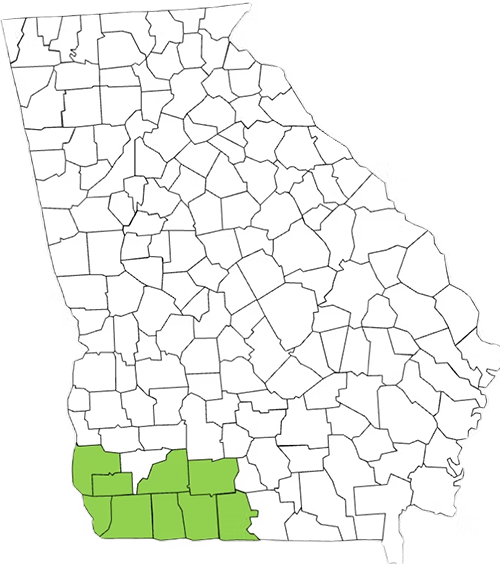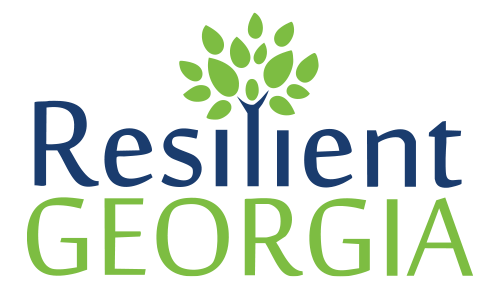We Build Resilient Communities Through Free Educational Workshops
We believe our strength is in our ability to engage our community members in building caring connections by improving resiliency, preventing childhood trauma & understanding how our interactions with others can support those who have experienced trauma through education. Thanks to our partnership with Resilient Georgia, our training division runs Resilient Communities of Southwest Georgia Coalition right here in Thomasville, Georgia. We serve nine SW GA Counties and you can come to our campus for training sessions, or we’ll come to you. View the schedule and book your FREE training today.
Trauma-Informed Workshops Offered
We collaborate with community and youth-serving organizations across nine Southwest Georgia counties to provide Youth Mental Health and Trauma-Informed Care trainings. These trainings focus on key areas such as resilience, youth and teen development, grief, and suicide prevention. Topics are grouped within:

Mental Health & Suicide Prevention

Grief

Resiliency
Workshops

Mental Health & Suicide Prevention
Question, Persuade, Refer (QPR)
For all audiences
In-person or Virtual - 4 Hour Workshop
Just as people trained in CPR and the Heimlich Maneuver help save thousands of lives each year, people trained in QPR learn how to recognize the warning signs of a suicide crisis and how to question, persuade, and refer someone to help.
Each year thousands of Americans, like you, are saying “YES” to saving the life of a friend, colleague, sibling, or neighbor.
Teen Mental Health First Aid
For Teens (Ages 14-18)
In-person – 3 Hour Workshop
Youth Mental Health First Aid
For Youth-Serving Professionals
In-person – 6.5 Hour Workshop
Youth Mental Health First Aid is designed to teach parents, family members, caregivers, teachers, school staff, neighbors, health and human services workers, and other caring citizens how to help an adolescent (age 12-18) who is experiencing a mental health or addictions challenge or is in crisis. Youth Mental Health First Aid is primarily designed for adults who regularly interact with young people. The course introduces common mental health challenges for youth, reviews typical adolescent development, and teaches a 5-step action plan for how to help young people in both crisis and non-crisis situations. Topics covered include anxiety, depression, substance use, disorders in which psychosis may occur, disruptive behavior disorders (including AD/HD), and eating disorders.

Resiliency
Becoming a More Resilient Parent
For Caregivers
In-person or Virtual – 2 Hour Workshop
Resilience is often thought of as the ability to bounce back from a tough time. In this training we’re going to look at resilience as bouncing forward. Parents frequently model resilience for their children. Our actions – no matter how small – can have a big impact on our children and ultimately, on our communities. This training will discuss:
- Our responses to stress
- The impacts stress can have
- Ways we can promote positive childhood experiences and create resilience through connection
Child Welfare
For Caregivers & Youth Serving Professionals
In-person or Virtual – 3 Hour Workshops
This community training consists of four modules focused on the topic of complex childhood trauma and its impact on the brain and how to build resilience. Each module is 3 hours, and the facilitators are certified Georgia State University staff.
Workshop Series
- Trauma 101
- Brain 101
- Trauma to Resilience: Strategies to Ensure Children’s Well-Being
- Recognizing & Managing Secondary Traumatic Stress
- Psychological Safety: A Pathway to Resilience
- Differences are Good: An Exploration of Cultural Competence
Connections Matter
For All Audiences
In-person or Virtual – 3 Hour Workshop
This training is designed to engage community members in building caring connections to improve resiliency. Interactive, discussion-based training provides participants with a better understanding of trauma, brain development, resilience, and concrete knowledge about Adverse Childhood Experiences (ACEs).
Connect Now
For Caregivers, Educators, and Youth-Serving Professionals
In-person or Virtual – 1 Hour Workshop
Everyday connections are more important than we ever believed. Science tells us that relationships have the power to shape our brains. Relationships help us learn better, work better, and parent better. When we experience tough times, they help us heal. With each connection, we develop a healthier, stronger community. Connect Now provides an overview of the Adverse Childhood Experiences (ACEs) study and a glimpse into Connections Matter Georgia—a more in-depth training designed to engage community members in building caring connections to improve resiliency, prevent childhood trauma, and understand how our interactions with others can support those who have experienced trauma.
Path to Becoming Trauma-Informed
For All Audiences

Grief
Kate’s Club Training Workshops
For All Audiences
In-person or Virtual
Kate’s Club seeks to empower children and teens, their families, and young adults facing life after the death of a parent, sibling, caregiver or someone important to them.
Workshop Series
- Child Bereavement 101: The Grieving Student
- Re-Grief, Resiliency & Post-Traumatic Growth
- The Grieving Parent
- Support After Homicide, Suicide, or Overdose
- Sibling Loss
- It’s Complicated
- Grief in Uncertain Times
- Activity Toolkit
Email us at training@vashti.org to schedule a class for your organization today.
In Partnership With

Where We Serve
Our Outreach Division’s Resilient Communities of SW Georgia Coalition Serves 9 Counties in Our Region

- Brooks
- Colquitt
- Decatur
- Early
- Grady
- Miller
- Mitchell
- Seminole
- Thomas
What We Do
- Build Awareness: Working across our local communities, we promote trauma-focused training and foster a common language around childhood adversity and resilience. This shared understanding helps raise awareness of children’s mental health and the impact of trauma.
- Promote Best Practices: We advocate for change through a Justice, Equity, Diversity, and Inclusion (JEDI) lens, ensuring that all voices are heard and valued. By integrating best practices, we aim to create a more inclusive and supportive environment for children and families.
- Equip Professionals: We collaborate with community partners and youth-serving organizations to advance and develop the workforce. Together, we offer a robust catalog of professional development opportunities and training on trauma-informed care, suicide prevention, child abuse prevention, and adverse childhood experiences.
- Advocate for Change: We continuously evaluate our programs to measure their effectiveness, with the ultimate goal of reducing child abuse and neglect. Through our efforts, we strive to create a sustainable model for change that benefits children and families across our region.


